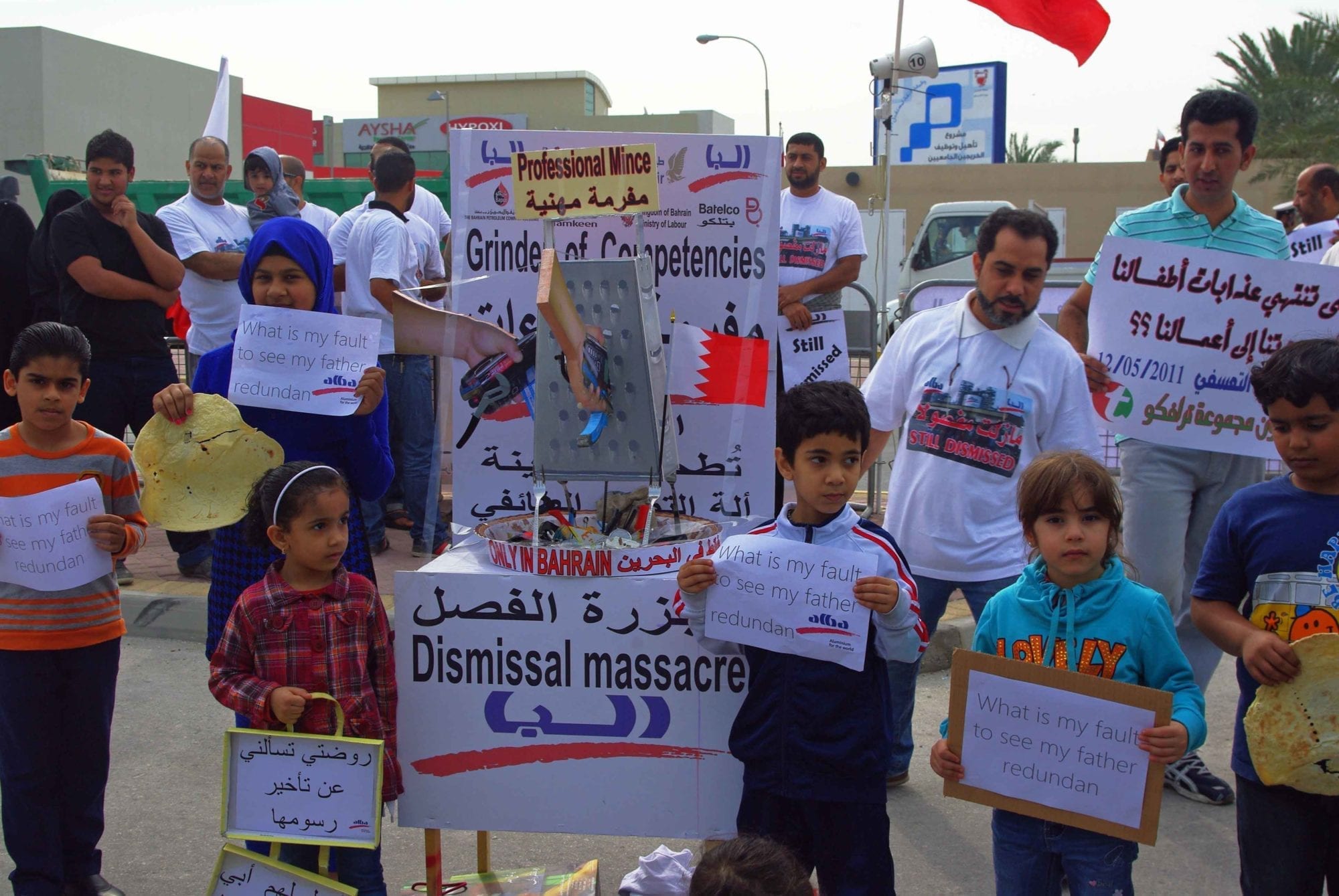The Bahrain government continues to torture opponents, penalize union members and leaders, and suppress human rights four years after the people of Bahrain stood up for a more participatory government, says Mohammed Al-Tajer, general coordinator of the Bahrain Human Rights Observatory and a human rights lawyer.
In fact, he says, “the situation has worsened. Security police are everywhere, military police are everywhere. Bahrain is a totally militarized place.” Al-Tajer spoke today with the Solidarity Center in Washington, D.C., where his visit coincides with the anniversary of protests for greater political freedom in the Gulf kingdom, which launched February 14, 2011.
Al-Tajer, who has represented hundreds of workers and political activists since the government crackdown began in 2011, was arrested that year and held without access to lawyers or his family for more than three months. When he was brought to trial, he faced charges that included publicly inciting hatred against the government and spreading malicious news and propaganda. He was convicted but released based on time served.
His high international profile—the United Nations decried his treatment by the government—has so far enabled him to continue his work without arrest.
Since 2011, Al-Tajer says 166 people have been killed and thousands are still in jail, many of whom are teachers, doctors, nurses and journalists. Union leaders have been especially targeted. Some of have been jailed, others have been fired, or given dead-end jobs and 4,500 union members have been fired for participating in the 2011 actions, Al-Tajer says. Banning workers from certain jobs, a tactic for repressing dissent, continues: Al-Tajer says he sees several new cases a week as workers seek to appeal their dismissals.
“Anybody who Tweets, anybody who speaks about freedom, about labor rights, might go to jail, might lose his job,” he says, adding that anyone who calls for a strike is jailed.
In 2013, the government issued restrictive anti-terrorism laws that ban all protests and public gatherings and stipulate that parents could be jailed if their children repeatedly participate in demonstrations. Amnesty International characterized the laws as “a further shameful attempt to completely ban any form of dissent and freedom of expression in the country.”
Most recently, Bahrain has been stripping citizenship from activists and others who express dissent, including 72 people last week, and Al-Tajer says the government preparing to issue a new set of harsh decrees.
Ali Abdulemam, a Bahraini human rights activist, was among them. Writing at Foreign Policy, Abdulemam says:
“This latest step by the Bahraini monarchy is the culmination of a decade-long effort to stifle me and others who oppose its rule. I have been jailed twice, subjected to torture, and fired from my job due to my activism. I was regularly harassed by pro-government thugs, and spent two years of my life in hiding. As if all that is not enough, the authorities have now branded me with the title ‘stateless.’”
As Al-Tajer says, repression in Bahrain is so widespread that “No single family has not been affected in Bahrain.”

